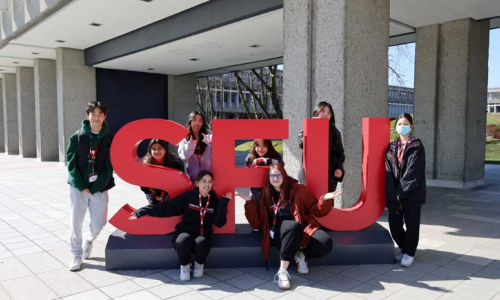
Have you been enjoying teamwork in the pandemic? Do you prefer working with others remotely or in-person? These are some questions that have put me in a reality check and on a quest to make teamwork very engaging remotely. About three weeks ago, I had an experience with my assigned team for a group presentation. Our task was to give a five-minute presentation on business communication in an international country.
During the entire period that we researched and held Zoom meetings... I never saw anyone’s face!
I had to create a face to match the voice of each team member. On the day of our presentation, I could match their voices to their faces eventually. Their faces certainly did not align with what I had imagined.
You may have had similar experiences or even more interesting stories on how you worked on a team project. Nevertheless, we all have the responsibility to bring enthusiasm and active participation in teamwork. This is not limited to just teamwork in classes. Active participation brings value to teamwork in volunteer opportunities, professional settings, student clubs and organization initiatives.
I've been thinking a lot about how we can make it easier to actively participate remotely. Here are five helpful tips that can significantly improve the quality of your teamwork experience in our current circumstances.
1. Turn on Your Webcam During Meetings
This goes a long way in creating an atmosphere of in-person interactions. You can do more than just hear each other’s voices or collaborate through Google Docs and other text-based collaborative documents. It will give room for building emotional connections and active involvement in the task or project given. If a group member cannot turn on their video, you can politely ask him/her to put up a picture showing their face as a display picture during the meetings. Try out different cool backgrounds on Zoom too!
2. Introduce Yourselves With an Icebreaker
This point makes me reminisce about the first tutorials of each class where the Teaching Assistant (TA) tfacilitates an icebreaker activity. At first, it may seem weird and awkward, but you could meet potential group mates and study buddies, right? This also applies to our remote interactions. I advise that you introduce an icebreaker question or activity to ease the tension or awkwardness and get to know one another. Let the topic be outside of academics and peek into each member’s personal life.
3. Bring Enthusiasm and a Positive Spirit to Each Meeting
I understand that we are living in very uncertain times and enthusiasm is not always easy to project. However, enthusiasm still creates an atmosphere that is welcoming and easy to collaborate. Be the sunshine in your team and encourage other team members to be positive. This is also why you need to find common ground among team members because knowing one another makes enthusiasm contagious! Start conversations and state ideas that can spur your teammates to action and get them more interested in the collaborative process. Learn more about different brainstorming prompts and questions here.
Here's some examples of brainstorming questions from Miro.com:
- What about this project excites you (or not)?
- Which of these action items should we tackle first?
4. Communicate Openly and Encourage Input From Everyone
This is much easier said than done. There are truly people who will be more outspoken in presenting ideas or offering critique. But you should remember to seek the opinions of others and welcome their contrary perspectives as well. In communicating clearly, set clear expectations for each person’s roles. With our present circumstances, it is easy to be unaware of important dates or deadlines. For example, your team can create a document stating clearly what each member’s role or responsibility is, the deadlines and some agreed-upon rules for your collaboration. Simply put, a group contract. Format it in the best way your group members can easily use and refer to it.
5. Be Understanding and Tolerant
Teamwork may not always yield the results we want, and our team members may not exactly bring their 100% to every meeting or task. Regardless of this, remember to always be sensitive and understanding of the needs of others. The pandemic has changed and upset order and stability as we know it. Thus, it is important to also be flexible and not overly demanding. For example, the rose-thorn-bud technique is a creative and effective way for team members to share any concerns or highlights with the team.
- Rose: "What has been a highlight of your day?"
- Thorn: "What has been bothering you lately?"
- Bud: "What are you looking forward to today?"
Overall, working in teams remotely requires an extra amount of dedication and enthusiasm to produce excellent results. Remain open-minded and encourage others to be actively involved in any way you can. Working remotely also has its perks, be glad about that and work to improve its inadequacies. Our physical distancing does not stop us from building social connections!



















